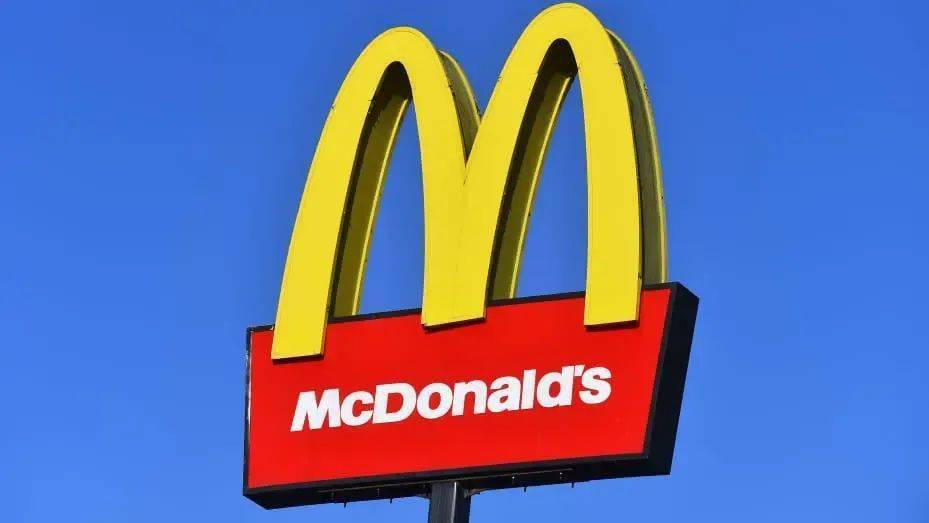
In today's highly competitive global restaurant market, McDonald's, the fast food giant, has recently faced the challenge of declining global sales. However, it is remarkable that in the face of this dilemma, McDonald's decisively started a low price war, and its stock price not only did not fall, but showed an upward trend.
McDonald's has long been a leading brand in the global restaurant industry, but its sales have declined as market conditions have changed and consumer needs have evolved. The rising cost caused by inflation has forced McDonald's to increase the price of its products, which has led to the loss of some consumers, especially those low-income people who are more sensitive to price. On July 29, 2024, McDonald's announced the second quarter of 2024 data: comparable sales fell 1% year over year, with declines in international markets and the United States. While quarterly revenue of $6.49 billion was essentially flat from a year earlier, net income fell 12 percent to $2.02 billion, missing expectations. It was McDonald's first same-store sales decline since the fourth quarter of 2020. McDonald's executives say consumers around the world are looking for deals and are moving away from pricier items like Big Macs.
Regionally, U.S. same-store sales declined 0.7% year-over-year, driven by lower traffic, partially offset by an increase in average bills from strategic menu price increases. Same-store sales in international operating markets declined 1.1% year-over-year, with results impacted by negative growth in several markets, including France. Same store sales in the international development licensing market decreased 1.3% year-over-year due to the ongoing impact of the war in the Middle East and a decline in same store sales in China, offsetting the increase in Latin America and Japan.
In the face of market headwinds, McDonald's quickly adjusted its strategy and launched a low-price war. McDonald's unveiled a new strategic plan to "Accelerate the Arches" at its investor day in March, and launched a "$5 Value meal" in the United States at the end of June - including a burger, chicken McNugget, small fries and small Coke - at a discount of about 30 to 40 percent from the original price of local items. With well-designed low price packages and promotions, McDonald's aims to re-engage consumers who have been driven away by price, while also attracting new customer groups. The core of this strategy is to meet consumers' pursuit of cost-effective, so that they can still enjoy McDonald's food in a period of greater economic pressure. The start of the war on low prices has had a positive impact on McDonald's business. The low price package has attracted a large number of consumers' attention and purchase, and the customer traffic in the store has increased significantly. Consumers are attracted by the affordable prices and are willing to choose McDonald's as their dining choice again. The low price strategy helped boost McDonald's brand image in the minds of consumers, making it seen as a brand that can provide affordable food and strengthen customer loyalty.
What is more surprising is that McDonald's strategy has also received unexpected results in the financial markets. Although second-quarter revenue, net income and earnings per share missed market expectations, and same-store sales declined, the stock market has confidence in McDonald's strategy to fight low prices. Investors saw the potential for McDonald's to regain market share and improve performance through its low price strategy, so they rushed to buy shares, sending the price up instead of down. McDonald's shares are up more than 3% so far this year. The stock is still down 11% year-to-date, underperforming the S&P 500's nearly 15% gain.
McDonald's case provides valuable experience and inspiration for other companies. In the face of market challenges, companies need to quickly adjust their strategies to adapt to market changes and consumer needs. The low price strategy is not a short-term emergency means, but an effective strategy that can rebuild brand competitiveness, attract consumers and increase market share in the long term. McDonald's has defied the challenge of declining global sales and bucked the market by launching a low-price war. This initiative not only shows McDonald's market resilience, but also provides a useful reference for the entire catering industry and other industries in coping with difficulties. It will be interesting to see how McDonald's continues to grow and evolve with this strategy.

Since 2022, the Fed has cumulatively reduced its balance sheet by $2.4 trillion through quantitative tightening (QT) policies, leading to a near depletion of liquidity in the financial system.
Since 2022, the Fed has cumulatively reduced its balance sh…
On December 11 local time, the White House once again spoke…
Fiji recently launched its first green finance classificati…
Recently, the European Commission fined Musk's X platform (…
At the end of 2025, the situation in the Caribbean suddenly…
The U.S. AI industry in 2025 is witnessing a feverish feast…